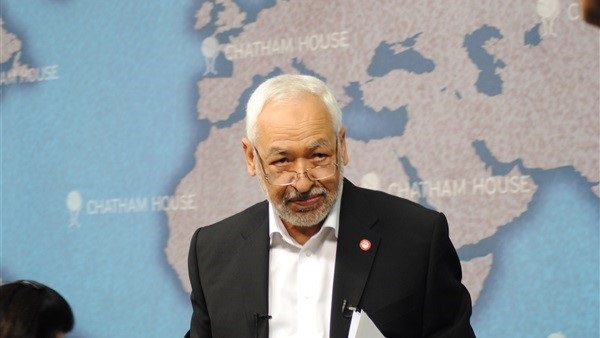Does it carry political messages? Implications of Tightening Punishment on Ghannouchi

A Tunisian court has increased the prison sentence
imposed on the leader of the Ennahda movement, Rachid Ghannouchi, from 12
months to 15 months due to his description of the police as
"tyrants."
While the Tunisian judiciary justified the verdict by claiming
that the term was commonly used by extremists, considering that Ghannouchi
intended the same meaning when he used the word, the Ennahda movement, known as
the "Brotherhood's arm in Tunisia," stated in a press release that
the term was taken out of context arbitrarily.
In their statement, the movement emphasized that
Ghannouchi's intellectual and political journey over many years demonstrates
that he has been one of the most important figures fighting extremist
ideologies, radicalism, and terrorism. They renewed their call for the release
of the imprisoned and focusing on finding solutions to the country's economic
and social crisis.
Implications of the Verdict
Even though the Tunisian president, Kais Saied, insists
on the independence of the judiciary, it does not mean that the Tunisian
authorities have not intervened to a degree that raises questions. The trial
against Ghannouchi focuses on this particular issue, while other cases remain
unresolved. Ghannouchi is accused of more vital and dangerous matters than his
use of the term "tyrants." So, why is this case being prosecuted,
specifically, while other cases remain undecided?
In every occasion and celebration, President Saied
reiterates his commitment to holding all corrupt and destructive individuals
accountable, reflecting the current authority's determination to prosecute and
track Ennahda.
This is evidenced by the detention of approximately 100
leaders associated with the Muslim Brotherhood on charges related to traveling
to Syria and Iraq, including former Prime Minister Ali Laarayedh, former
Justice Minister Nourreddine Bhiri, and former Brotherhood parliamentarian
Mohamed Ferjani.
Tunisian authorities are compelled to expedite the
resolution of the cases of individuals who joined Al-Qaeda and ISIS in the
post-2011 period to reveal the details of their travel and those behind it.
This is particularly important as the pretrial detention period for the
imprisoned Ennahda leaders has almost come to an end since late last year.
The Tunisian law specifies a maximum pretrial detention
period of 14 months, which means that the imprisoned Ennahda leaders can escape
punishment if they are not convicted.
Therefore, Tunisian parliament member Fatma Lemseddi
called for taking advantage of the restoration of Tunisian-Syrian relations, as
she mentioned on her Facebook account. She argued that Syrian authorities
possess precise and vital information about the parties involved in sending
young people to conflict zones and facilitating their travels within a
well-organized political context.
She emphasized the need for expediency and time-saving,
either by forming a judicial and security team to visit Syrian territories to
interrogate the terrorists detained there or by resorting to international
judicial delegation to acquire all the necessary information that should be
added to the Tunisian investigation file, considering the possibility of
surrendering these elements.
It is worth noting that the Tunisian Ambassador to
Damascus, Mohamed Al-Mahdhabi, stated a month ago that his country's authorities
are cooperating with their Syrian counterparts to untangle a complex issue
related to Tunisian terrorists in Syria.
The Tunisian analyst, Khalil Rafik, agrees with this
perspective and expects an official Tunisian move in the coming months to confirm
Ennahda's guilt and resolve the youth recruitment issue. He asserted to
"Al-Mirat" that the harsher penalty against Ghannouchi confirms the
Tunisian authorities' determination to hold Ennahda accountable for all the
charges leveled against them, whether it be sending young people, receiving
foreign funding, or money laundering.







